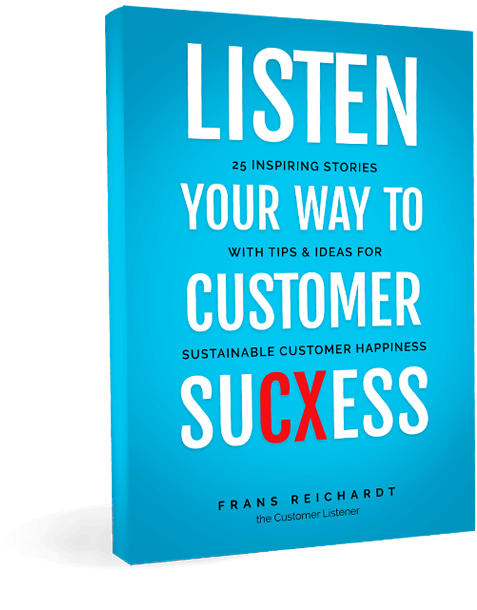 The Healing Power of Listening in Business & Personal Relationships
The Healing Power of Listening in Business & Personal Relationships
When you think of female leaders, who pops up in your mind first? Hillary Clinton? Angela Merkel? Michelle Obama? Mother Theresa? Oprah Winfrey?
When I think of the female leaders I have known in my life, the first person I think of is my mother. She was a leader and she was successful. She ran our family, day in day out, 7 days a week, 24 hours a day.
She also succeeded in managing me. That’s what I call successful!
Listening skills
One of the things I remember from the time I was a young boy is when my father got home from work and we had dinner together. My mother, my father, my sister and I.
During dinner, my mother demonstrated her tremendous listening skills.
She asked questions. She listened patiently. She looked at us.
She listened patiently to what my sister was saying about the projects she was working on at school.
My mother asked questions and she listened patiently. And she looked at my sister.
She listened patiently to what I was saying about the things that went well or bothered me at school.
My mother asked questions and she listened patiently. And she looked at me.
She listened patiently to what my father was saying about that big-big information project he was working on.
My mother asked questions and she listened patiently. And she looked at my father.
Powerful instruments
At the age of 14 or 15, when children tend to become a bit cynical, I started to wonder if my mother knew what my father was talking about. I’m pretty sure that most of the time she didn’t.
No. I’m sure she didn’t. And it didn’t matter. Because that wasn’t what she was listening for.
My mother wasn’t interested in the content of my father’s stories.
She was interested in how my father was feeling.
To find out, she used her most powerful instruments: her ears and her eyes.
By listening, she wasn’t collecting information to get a deeper knowledge of the projects at my sister’s school or at my father’s workplace.
By listening, she got to know what we were thinking, how we were feeling and what we needed.
That was what it was all about for her. By asking questions, listening to us and watching us, she gathered the exact information she needed to be a good mother and successful leader.
At the same time, by listening to us, she gave us the most important thing she could give us: her full attention.
Women are better listeners
Later, I found out again, that women are better listeners than men. Over the past years, it has been shown that companies that get the highest ratings from their customers are the ones that LISTEN to their employees and to their customers. These two appear to be closely related – happy employees make happy customers. That’s why more and more companies conduct Voice of the Customer programs in which they continuously listen to what their customers think, feel and need. And it’s mostly women who are the best listeners to what customers are saying.
Why is listening so powerful?
Let’s take a look at what the experts say.
In ‘The Science of Mother Love’, Cory Young says: “Scientific evidence shows that the way babies are cared for by their mothers will determine not only their emotional development, but the biological development of the child’s brain and central nervous system as well.”
In his book ‘Love Your Patients’, Dr Scott Louis Diering of the University of Michigan says: “Scientific research shows that, besides traditional medical care, it is real personal patient care (love, respect and humility) that relates directly to patient satisfaction and patient behaviour. Patients get better faster.”
In ‘Blink’, Malcolm Gladwell writes about research conducted by American insurance companies to investigate the connection between the doctor-patient relationship and the odds of a doctor being sued by a patient: “The likelihood of a doctor being sued by a patient is not tied to how many mistakes the doctor has made, but to whether the doctor’s patients feel cared for, listened to, and treated with respect. Basically, when it comes down to it, patients don’t sue doctors they like.”
Practice your personal listening skills
During my marriage, I was a useless listener. And it would be too easy to use my single-sided deafness as an excuse for his. When my dear ex-wife was telling me something and she suddenly stopped talking, I knew she was going to ask me: “Are you listening?”
When I said “Yes”, she would say: “What did I say?”
At that moment I could instantly reproduce the last words she had said. Word by word. I had developed a sort of buffer, cache memory. And it wasn’t until I reproduced that sentence myself that I actually heard what she had said.
After we divorced, I started learning how important listening is and how important it is to develop your listening skills. By asking questions, by listening patiently and by looking at the other person. Now I practice it in conversations with my ex-wife, with our sons, with my clients, my neighbor and with my mother of course. Even when I know that I will never be as good a listener as she still is.
Why is it that women are better listeners?
Listening is about caring. Listening is about not judging. Listening is about forgiving.
By nature, women are more caring, more understanding and more forgiving than us, men. I believe this has to do with the fact that women give birth to new life. Not us, men.
I really believe women could play an even more important role in business and politics than they do now. There are certainly far more reasons, but for sure, there is at least one thing women do much better than us, men: listening.
Create a listening environment
Cheryl Richardson said: “People start to heal the moment they feel heard”. With their healing power to listen, women can help create a listening environment in families, in business, in politics and in other types of communities. Women can help and teach others to care, not judge and forgive. In daily personal life, in daily business life and in daily political life. Women can invite others to speak up, express their thoughts and their feelings. Encourage them to use their voice to make themselves heard. With full attention, without being judged.
Frans Reichardt
The Customer Listener





